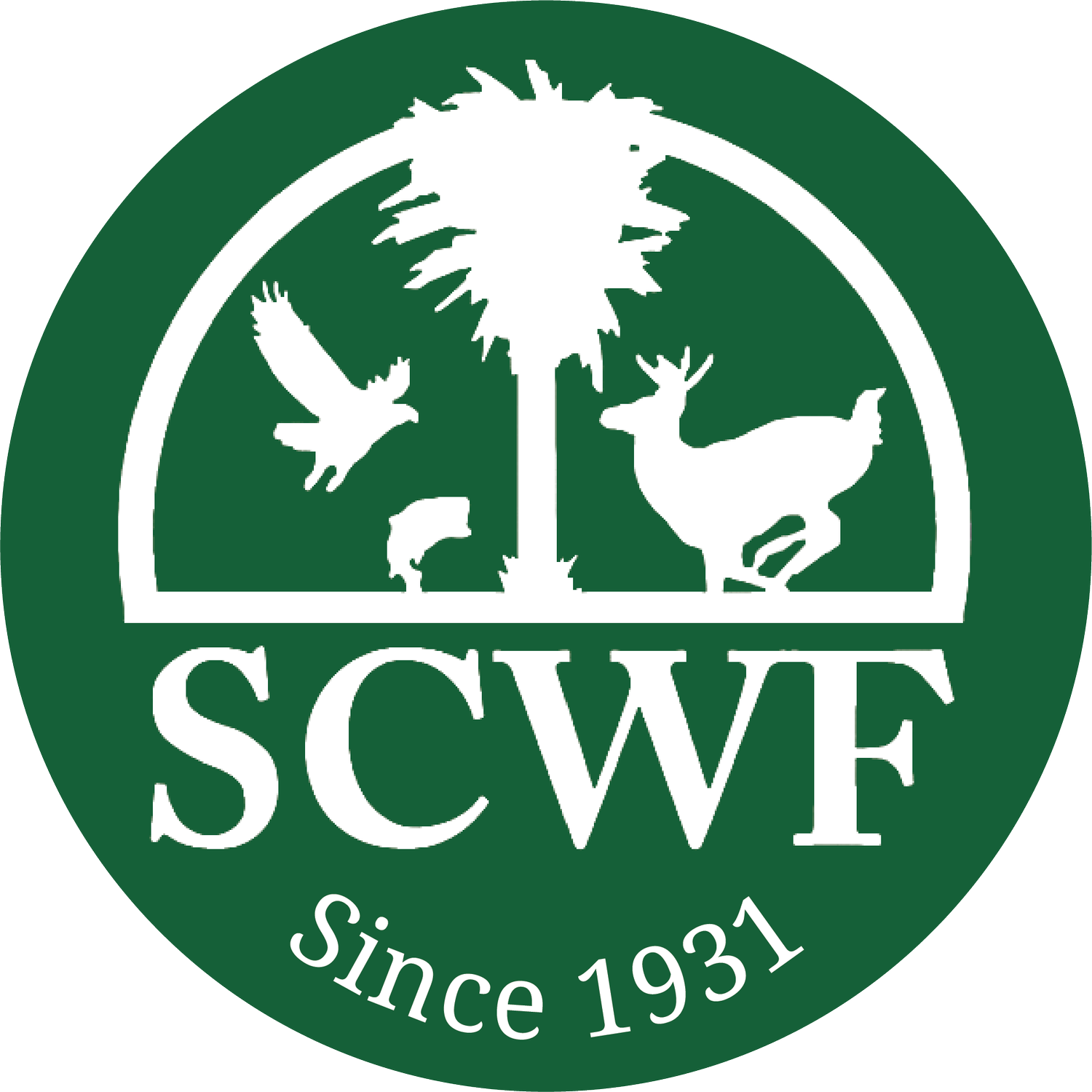Environmental advocacy groups in South Carolina filed a lawsuit challenging a permit for a proposed 9,000-acre community along Clements Ferry Road they say would make the area more vulnerable to flooding.
Senator Graham Backs Bipartisan Bill To Help SC’s At-Risk Wildlife
Senator Lindsey Graham has signed onto a bipartisan wildlife conservation bill, the Recovering America’s Wildlife Act, that will dedicate $1.4 billion annually to locally-led efforts to help at-risk wildlife species nationwide.
GREEN: Graham-backed bold, bipartisan wildlife bill is running out of time
From brook trout to bobwhites, wildlife is part of what defines South Carolina. Unfortunately, more than 800 local species of concern have been identified by the South Carolina Department of Natural Resources. It’s part of a larger national trend where more than one-third of America’s wildlife are edging toward extinction.
SCWF's WAIT Partner Event
SCWF’s Wildlife And Industry Together (WAIT) program is a partnership with conservation-minded businesses throughout the state who want to help wildlife thrive by enhancing their properties and providing educational opportunities for their employees and communities. To say thank you to our WAIT partners, SCWF recently hosted a sporting clay shooting competition at the Palmetto State Armory's Outdoors Shooting Facility in Swansea.
Environmental groups file lawsuit over proposed Cainhoy Peninsula housing development
Project Prothonotary: Restoring Bird Nesting Habitat in the Catawba-Wateree Watershed
Thanking Senator Graham for backing bipartisan wildlife bill
SCWF Upstate Nest Box Program
Wildlife Need You!
Scientists estimate that roughly one-third of America’s wildlife species are at an elevated risk of extinction. Here in South Carolina, there are 828 species of wildlife and plants in need of conservation action. These species are found in every habitat and among all major groups of wildlife—from Horseshoe Crabs to Wood Ducks to Bartram’s Redeye Bass. Please consider a donation now to help us continue our mission to conserve and restore South Carolina’s wildlife and wildlife habitat through education and advocacy.
GILBERT: Save horseshoe crabs from biomedical use
Greenville’s Mayor Pledges to Save the Monarch Butterfly
We can create jobs and prevent extinctions
Congress is considering a bold, bipartisan bill that would go a long way to addressing the wildlife crisis while creating jobs in every state and bridging the political divide. The Recovering America’s Wildlife Act (H.R. 2773) — led by Debbie Dingell, DMich., and Jeff Fortenberry, R-Neb. — would direct $1.4 billion of existing federal revenue toward proactive, voluntary, locally led efforts to help fish and wildlife species in decline.
Changing climate impacts SC wildlife
Hurricane season is here, and the 1st Congressional District has a lot to be grateful for. Stretching from about Awendaw to the Savannah River, the district is fortunate to have numerous permanently protected shoreline properties, and due to their intact geomorphology, they are better equipped to handle the wrath of hurricanes than their more developed neighbors.
SC Aquarium Hosts Habitat Garden
SCWF held a wildlife habitat workshop at the SC Aquarium on March 14th, and participants learned information about creating and enhancing wildlife habitat by planting native plants, providing a water source, and adding feeders, nest boxes, etc. and how their own yards can be certified by the National Wildlife Federation. In partnership with the South Carolina Aquarium, and with support from Volvo and Roots N Shoots Nursery, they also installed native plants in front of the Aquarium which provide food, cover and places to raise young for pollinators, birds, and other wildlife. This garden serves a demonstration for visitors to learn how to attract wildlife to their own garden.
Help Support Shorebird Nesting
SCWF is one of many organizations supporting a new SCDNR S.C. Coastal Bird Conservation Program to protect and restore rapidly disappearing coastal bird habitat. The pilot project is to raise approximately $2 million for the cost share needed for the restoration of Crab Bank with dredged material from the Charleston Harbor Deepening Project. Crab Bank, an island created in Charleston Harbor with dredged material and former home to thousands of nesting coastal birds, has eroded to the point that it is unsuitable for bird use.
SCWF Wood Duck Box Program
Once threatened with near extinction from habitat destruction and overharvesting, wood duck populations are now steady or increasing. SCWF is partnering with Duke Energy, SCDNR and the Lake Wateree Association to increase wood duck populations by constructing and erecting 80 wood duck nesting boxes in the on the shorelines of Lake Wateree, Fishing Creek Reservoir, Rocky Creek, Cedar Creek Reservoirs, the Wateree River, and smaller ponds in between.
Action Alert: Plastics are harmful to wildlife
Dr. Al Segars just retired from SC Department of Natural Resources. He has seen up close the tremendous toll plastics have taken on marine mammals, sea turtles and fisheries. On behalf of SCWF he wrote this letter to legislators last week as they consider tying the hands of local governments and prohibiting them from placing restrictions on plastic debris. It is an extremely serious problem and gets worse by the day since plastics do not biodegrade.
Please contact your state senator and ask that he or she vote against the legislation that would tie the hands of cities, town and counties from doing what is best for their local citizens.
30 WAIT Sites Re-certified
SCWF) has re-certified 30 Wildlife And Industry Together (W.A.I.T.) sites for 2017. The W.A.I.T. program recognizes industries in South Carolina who are dedicated to protecting the environment and who keep wildlife needs in mind when making their land management decisions. Requirements for certification include wildlife habitat enhancement projects, environmental education for employees, and community outreach.













